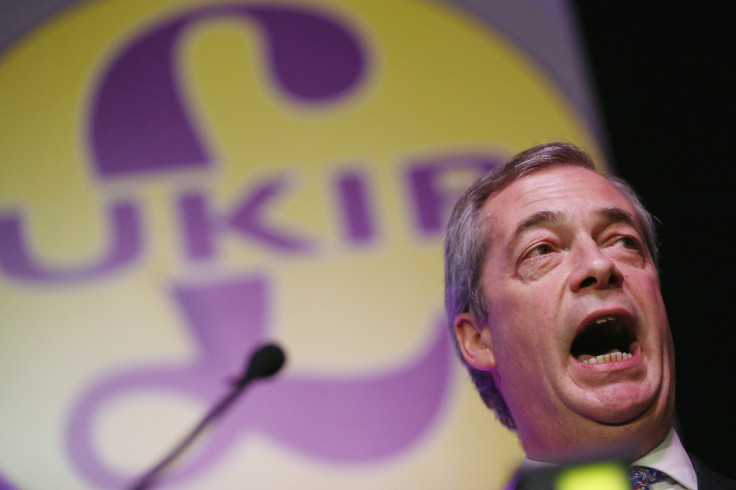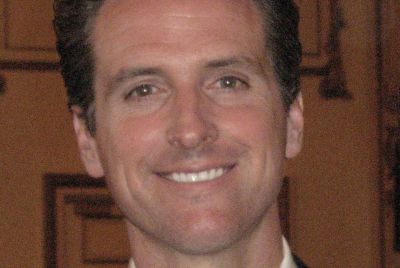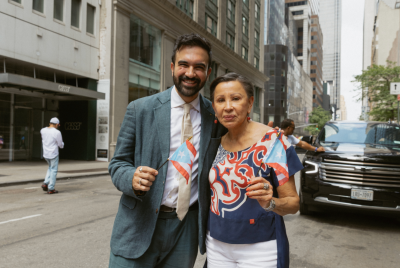Election 2015: These Ukip manifesto pledges might surprise you

Having written off the party's 2010 manifesto as a joke, Ukip leader Nigel Farage unveiled the fresher, sleeker and tighter edition for the forthcoming election.
If you had to take one headline away from it, it's that Ukip really, really, really wants to take Britain out of the European Union (EU) to cut red tape for business and stop most of the immigration from the continent.
But Ukip, which is polling at around 12% and on course to pick up a handful of MPs in the election, has a number of other interesting, curious and controversial proposals in its manifesto. Here's ten of them that might surprise you.
Banning sex education for primary school children.
We support age-appropriate sex and relationship education at secondary level, but not for primary school children.
There is a world of difference between teaching young children about online safety or telling them no one else is allowed to touch the private parts of their body, which is a sensible way to help prevent and encourage reporting of abuse and going into too much detail. The latter risks sexualising childhood, causing confusion and anxiety, and encouraging experimentation.
Making St George's Day and St David's Day bank holidays.
Ukip will declare St George's Day, 23 April a Bank Holiday in England and St David's Day, 1 March, in Wales.
Hiking defence spending beyond the Nato recommended minimum.
Our current level of military spending and staffing is not fulfilling the terms of our Nato membership - which requires that we spend 2% of GDP on defence - and the government has failed to lay out details of spending plans beyond 2015/16.
On the basis that the current base level of defence spending is maintained after 2015/16 at 1.9%, Ukip will increase the defence budget to meet our obligations to Nato and spend 2% of GDP on defence in 2015/16. We will exceed it substantially for the remaining years of the parliament.
Reinvigorating Britain's coal industry.
The British coal industry once employed one million miners. Now, all three remaining deep coal mines in Britain are set to close by 2016, at a cost of 2,000 jobs, despite having many years of productive life left and regardless of our continuing need for coal. 30% of our electricity is still produced from coal and we will be dependent on fossil fuels for many more years to come.
If we are to have energy security and cheap, plentiful, reliable sources of energy, coal must be part of the solution.
Bearing this in mind, Ukip will:
• Set up a commission to investigate ways to assist and rejuvenate the coal industry
• Seek to secure the survival and expansion of our indigenous coal industry in the form of deep, opencast and drift mining
• Drop all subsidies for wind and solar power, to ensure a level playing field for coal
• Discontinue the carbon floor tax on the basis that production for coal fired power stations is combined with carbon capture and storage
• Halt the decline of coal power stations and seek private funding to develop new, efficient plants
Bolstering animal welfare.
We can only regain control of animal health and welfare by leaving the EU. Ukip takes both issues seriously and we will:
• Triple the maximum jail sentences for animal cruelty and torture
• Impose lifetime bans on owning and/or looking after animals on any individual or company convicted of animal cruelty or torture
• Keep the ban on animal testing for cosmetics
• Challenge companies using animals for testing drugs or other medical treatments on the necessity for this form of testing, as opposed to the use of alternative technology
• Tightly regulate animal testing
• Ban the export of live animals for slaughter
• Insist on formal non-stun training and certification for all religious slaughtermen to ensure the highest standards are adhered to
• Install CCTV in every abattoir, monitored by the Meat Hygiene Service, and deal severely with any contraventions.
• Remove unnecessary EU restrictions that make small, local abattoirs unviable
Creating a zone around the coast for UK fishermen only.
Establish a 12-mile zone around our coastline for UK fishermen and a 200-mile exclusive economic zone under UK control, as is our right under international law.
Scrapping postal votes on demand.
Remove postal voting on demand. We will scrap the existing postal vote register completely and start again from scratch. Those wishing to have a postal vote must have a valid reason for applying.
We will not allow postal voting on demand. It is open to fraud on such a scale that election rigging is now a real possibility and perhaps even a probability in some areas. We cannot allow 'banana republic' voting fraud in Britain.
Letting locals hold referendums on big developments in their areas.
Give local people control over planning, by giving them the final say on major planning decisions, such as out-of-town large-scale supermarket developments, wind turbines, incinerators, solar farms and major housing developments, through the use of binding local referenda.
Merging the intelligence services under one umbrella.
Currently, British intelligence is fragmented between a number of agencies, including MI5, MI6, GCHQ and BBC Monitoring. All have different funding streams and report to different government departments. This generates a significant overlap in work and resources and risks exposing gaps in the system.
Ukip will create a new over-arching role of Director of National Intelligence (subject to confirmation hearing by the relevant Commons Select Committee), who will be charged with reviewing UK intelligence and security, in order to ensure threats are identified, monitored and dealt with by the swiftest, most appropriate and legal means available. He or she will be responsible for bringing all intelligence services together; developing cyber security measures; cutting down on waste and encouraging information and resource sharing.
Abolishing inheritance tax altogether.
Assets bought out of taxed income should not be taxed again when their owners die. We will strike out the hated 'death tax.' It hits the middle classes hardest, those who have worked to provide for their dependents, because the wealthiest almost always manage to avoid paying it.
© Copyright IBTimes 2025. All rights reserved.





















